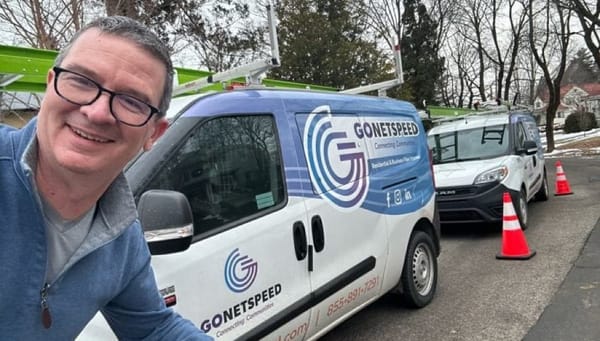Senate Bill Proposes $3 Billion for Rip-and-Replace Program
The bill’s sponsor had hoped the ‘Rip-and-Replace’ reimbursement funding would be included in the FY2024 minibus spending bill passed Friday.
Jericho Casper

WASHINGTON, March 25, 2024 – Amid growing concerns over funding shortages prompting small- and medium-sized carriers to weigh the possibility of cutting wireless services, a Senate bill introduced Friday aims to inject an additional $3.08 billion into an initiative targeting the removal of Chinese equipment from U.S. communication networks.
The Supporting National Security with Spectrum Act aims to fully fund the Secure and Trusted Networks Reimbursement Program, also known as rip-and-replace, effectively plugging the shortfall the FCC has warned about for months.

The rip-and-replace program requires internet service providers to remove Chinese-manufactured equipment from their networks, specifically products from Huawei Technologies Company and ZTE, as the U.S. government has raised significant concerns about the potential for espionage and other malicious activities emanating from the Chinese government.
The proposed legislation would fund the rip-and-replace initiatives through a mandate that requires the Federal Communications Commission to re-auction certain spectrum licenses, which were returned to the commission by Dish and affiliates last year.
Specifically, within a year of the bill’s approval, the FCC would be required to initiate competitive bidding for 197 spectrum licenses within the AWS-3 band, regardless of the expiration of the commission’s spectrum auction authority.
The bill, designated as S.B. 4049, was put forward by Senators Steve Daines, R-Montana, Roger Wicker, R-Mississippi, and Cynthia Lummis, R-Wyoming. It has since been referred to the Senate Commerce, Science, and Transportation Committee, where Senators Wicker and Lummis serve.
Tasked with overseeing the rip-and-replace program, the FCC approved $4.98 billion in applications seeking reimbursement funding in July 2022. Originally budgeted $1.9 billion, the program has grappled with cost underestimations, prompting the proposed $3.08 billion supplement.

Due to funding constraints, the commission was compelled to prorate funds, providing only 39.5 percent of reasonable costs to carriers upfront to replace the equipment.
With the deadline for numerous providers to remove Huawei and ZTE communications equipment from their networks set for September 23, 2024, concerns have surfaced regarding the potential that carriers may face disruptions mid-effort.
As program participants reach or surpass their prorated funding allocations, small- and medium-sized wireless telecommunications carriers are deciding where they will have to reduce or even eliminate wireless service for both their subscribers and the tens of millions of Americans who roam onto their networks for connectivity, said Competitive Carriers Association President and CEO Tim Donovan, in response to the proposed legislation. CCA backed the bill in its draft form.
Despite efforts by the FCC to eliminate insecure network equipment, data disclosed in February showed thousands of network sites still use Chinese equipment. It was then reported that the FCC had paid out $429 million of the nearly $5 billion in approved applications for Rip-and-Replace initiatives, so far.
The proposed legislative push comes after 33 Democratic and Independent Senators urged for rip-and-replace funding to be included in the minibus spending bill passed on Friday.
Daines had considered attaching the proposal to the minibus ratified Friday, having submitted its text Thursday as an amendment to the Further Consolidated Appropriations Act of 2024. However, his attempts to include the funding in the minibus were unsuccessful as congressional leaders rejected his bid.
In a statement announcing the legislation, Daines said, “Rural providers must have the resources and ability to remove compromised equipment, and without it, there is a serious national security risk. This service is critical for many Montanans that could lose 911 and cell service. We must get this done before it’s too late.”
Members of the House Communications and Technology Subcommittee, who have consistently urged for complete funding for the rip-and-replace program, recently bolstered national security efforts by advancing four additional bills designed to address foreign threats to the security and economic prosperity of the U.S. communications sector.








